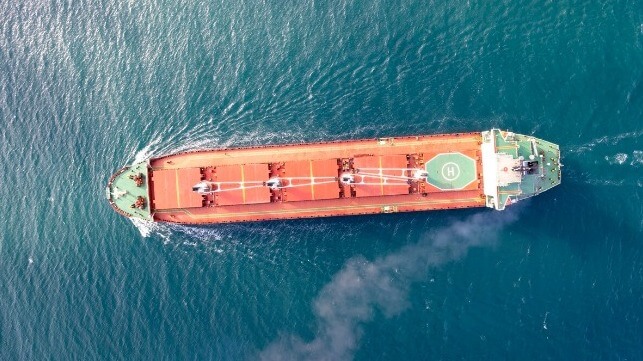DNV: Efficiency Will Play the Biggest Role in Near-Term Decarbonization

While many shipowners have made headline-grabbing investments in green dual-fuel technology over the past year, the most important area of near-term progress in decarbonization is likely going to be vessel efficiency, according to DNV. The class society's latest forecast predicts a more gradual pace of change for emissions, and it acknowledges the reality that more than 90 percent of the world's fleet runs on bunker fuel - and likely will for years to come. In short, the green methanol "happy hour" is over.
"We accept that this transition will not be rapid, and the challenge must be met with pragmatism," said DNV Maritime CEO Knut Orbeck-Nilssen in a statement. "Energy-efficiency measures are essential to operating profitably into the 2030s and 2040s until cost and supply of carbon-neutral fuels become more feasible."
Efficiency measures can shave 4-16 percent of the industry's fuel consumption by 2030, according to DNV's calaculations. In the long term, these technical and operational changes would work equally well when running on alternative fuels, which will be more costly and harder to source in large quantities. (Shipping would need to consume as much as 100 percent of the world's total green-fuel supply in order to meet IMO targets in 2030, according to DNV's forecast, and there will be stiff competition from other industries for the same fuels.)
Onboard carbon capture is another possible alternative, and is already in use at a small scale. It will become even more important if the supply of green fuels remains limited, but it requires new port infrastructure for receiving and securely storing captured carbon. That will require new collaborative efforts between shipowners, ports and carbon capture developers, says Orbeck-Nilssen.
In every scenario DNV studied, the alternative fuel mix remained diverse, with no dominant industry-wide option. However, whichever fuel owners pick, one regulatory option seems clear: pooling of compliance. By pooling an entire fleet's emissions performance, owners can meet the regulatory standard by putting all of their green-fuel funding into one or two ships. The low-performing ships continue to emit as usual, but their carbon is counterbalanced by a handful of high-performing ships. This can be up to six percent less expensive than investing in incremental decarbonization on every individual vessel, according to DNV. Pooling is part of the FuelEU Maritime regulation, and may become a part of future IMO emissions rules as well.
In all scenarios, one prediction remains constant: decarbonization will be expensive. The switch to green fuel could double the cost of containerized freight by 2050, with potential implications for re-shoring and near-shoring.
